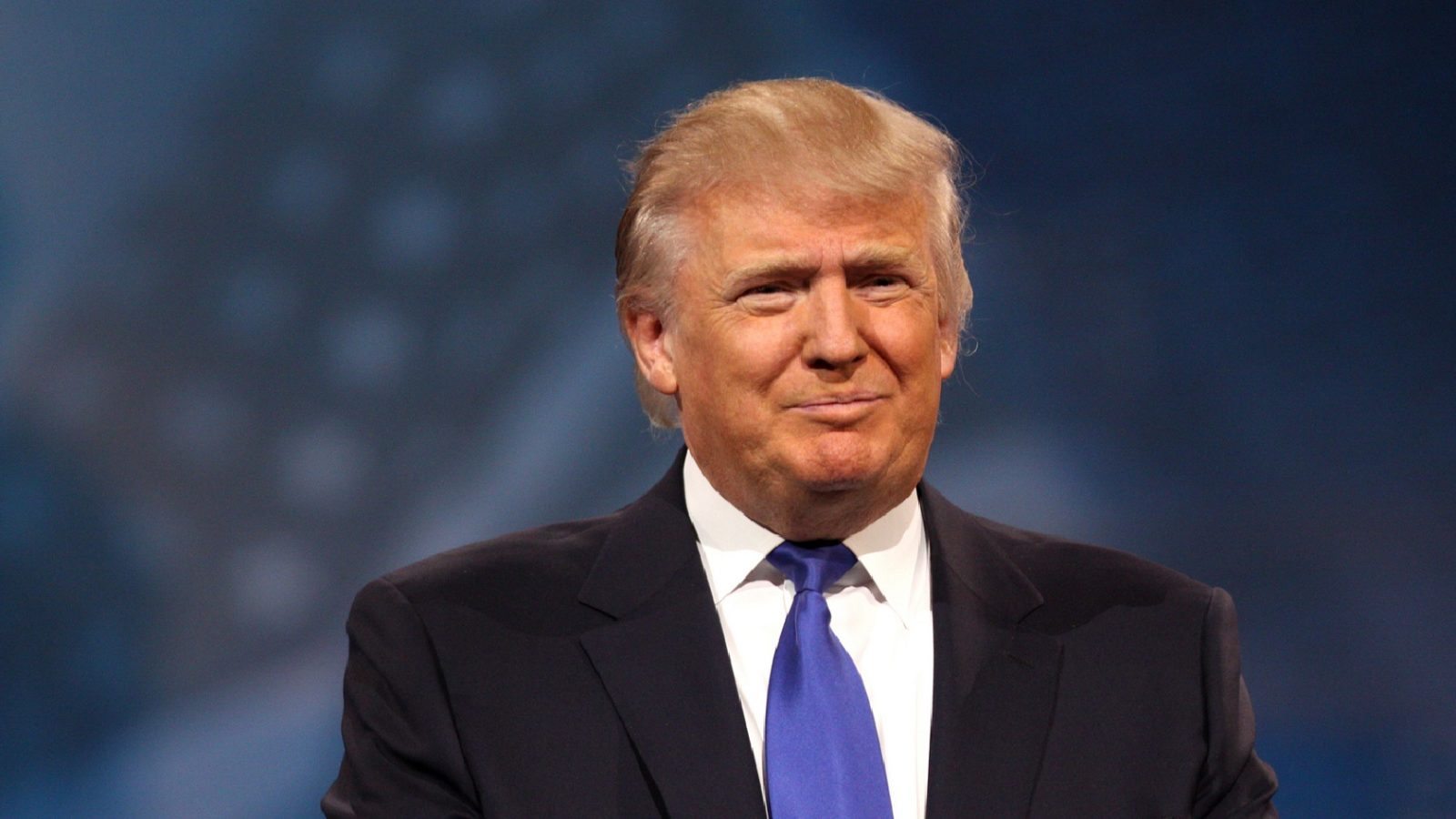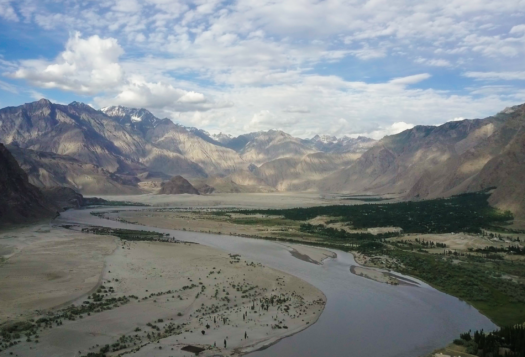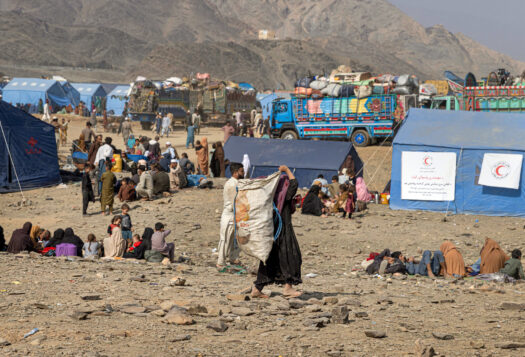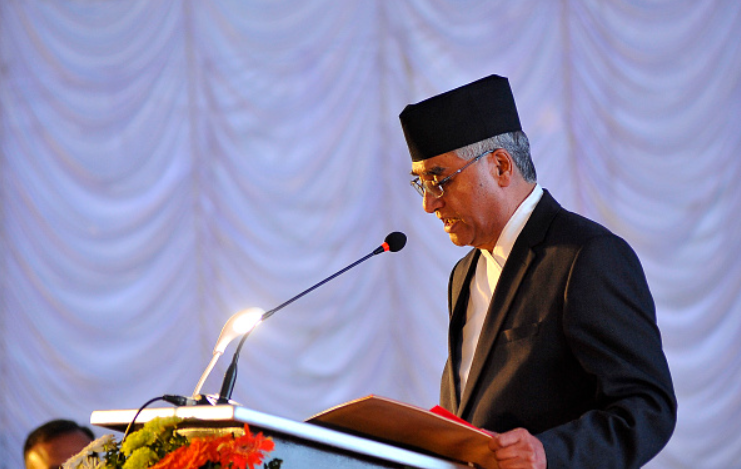
It has been nearly three months since the President of the Nepali Congress Sher Bahadur Deuba became Nepal’s prime minister for the fifth time, replacing the Chair of the Communist Party of Nepal-Unified Marxist-Leninist (CPN-UML), K.P. Sharma Oli. Deuba has become the country’s executive head at a crucial time. He will undoubtedly face difficulties managing the coalition government amidst the perennially unstable domestic political environment. Events such as the initial split in the previous governing party the Nepal Communist Party (NCP), Oli’s two rash attempts to dissolve the parliament, the later division of the main opposition party (CPN-UML), and the government’s introduction of a controversial ordinance that makes it easier for political parties to split and form separate parties, have played a key role in aggravating domestic politics.
As domestic instability continues, Deuba is also facing pressing issues regarding Nepal’s relations with three powerful countries. During his tenure, Deuba must revive stagnated relations with India, assess China’s role in Nepal, and decide on parliamentary approval of the Millennium Challenge Corporation (MCC) agreement between Nepal and the United States. With the prime minister engrossed in managing internal politics since assuming office, Deuba appears unable to give Nepal’s foreign policy a clear direction. Weighing Nepal’s foreign policy goals, which have tended to revolve around its relationships with India, China, and the United States, against domestic political constraints will remain a consistent challenge for Deuba in the coming years.
The Lagging India-Nepal Relationship
Nepal has strong historical ties with India, which are deeply rooted in people-to-people connections, cultural affinity, and socio-economic ties. However, relations have soured in recent years due to a series of disagreements. The 2015 economic blockade by India on Nepal, the territorial dispute concerning Kalapani, Lipulek, and Limpiyadhura, and the subsequent move by Nepal to amend its constitution to incorporate these territories on its map and national emblem have created an atmosphere of uneasiness in the bilateral relationship. Diplomatic tensions ignited again after a Nepali national died after falling off a ropeway while crossing the Mahakali river, bordering India on July 30. The incident happened in the presence of India’s border guards, and Nepal’s media reported it has been caused by the guards interference with the ropeway. The Deuba government’s indifference toward the loss of life of a Nepali citizen and its unwillingness to take up the matter with the Indian government even after completion of an internal inquiry, beyond a reported diplomatic note sent to India over a month later, has tarnished its image among the general public.
Weighing Nepal’s foreign policy goals, which have tended to revolve around its relationships with India, China, and the United States, against domestic political constraints will remain a consistent challenge for Deuba in the coming years.
Despite Nepal and India being close neighbors, there are few formal interactions at the ministerial or prime ministerial levels. Disputes and pending issues could be tackled in a more amicable manner if there was greater willingness to cooperate and communicate. Neither Indian Prime Minister Narendra Modi nor Deuba appear to be taking serious steps towards improving their relationship. A visit by either of the prime ministers to each other’s countries would give the bilateral relationship a new start, potentially improving future relations. The newly appointed foreign minister Narayan Khadka, who has met with his counterpart S. Jaishankar on the sidelines of the most recent United Nations General Assembly meeting, should plan a visit to India at the earliest, where Kathmandu can list out priorities as well as revisit the status of pending issues vis-à-vis its relations with New Delhi.
Overlooking China?
China is a close neighbor of Nepal and the countries have historically enjoyed cordial relations, however, there has been recent unease about China’s growing role in the region. The two countries lack the people-to-people connections that have been the pillar of Nepal-India relations. Instead of cultural and historical ties, China’s relations with Nepal are primarily related to security and economic development.
Beijing fears Nepali soil being used as a base for anti-China activities by Tibetan exiles and refugees. Recently, the Deuba government has also alarmed China by establishing a task force to examine any border encroachment in the remote northwestern district of Humla, a shift from the previous Oli administration which had declared that there was no border dispute in that area. It is unclear if the Deuba government plans to take up the issue with China once the task force completes its investigation. Deuba’s unexpected reaction to this border issue may have caught China off-guard, as Beijing likely anticipated warm relations with Kathmandu in the wake of its “vaccine diplomacy” assistance to Nepal during the pandemic.
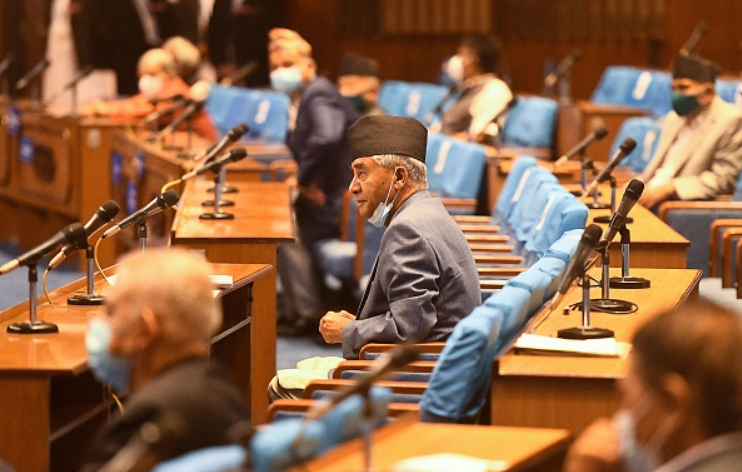
Economic relations between Nepal and China remained centered around China’s investments in the country, though the effectiveness of these efforts is unclear. Although Nepal is a signatory to the Belt and Road Initiative (BRI), no tangible progress has been made in the nine BRI projects, including the Kathmandu-Kerung railway connectivity, which is a part China’s Trans-Himalayan Multidimensional Connectivity with Nepal. During his visit to Kathmandu in October 2019, Chinese President Xi Jinping had stated that China would help Nepal become a “land-linked” country rather than a landlocked one by expediting the building of this project. The trade and transit agreement allowing Nepal access to seven Chinese sea and land ports for foreign trade has largely remained symbolic, and may be commercially and geographically unfeasible. Nepal also ideally prefers grants rather than loans, and BRI projects are usually undertaken on loan basis. Therefore, the Nepali side will seek clarity from Beijing on the funding of BRI projects.
At times, various governments have tried to pursue broader engagement with China only when relations with India were going through a rough patch. So far, the Deuba government has demonstrated little interest in engaging with China. However, given China’s level of involvement non-engagement may not be a viable option. Deuba will need to play a careful balancing act between addressing border disputes and negotiating more impactful economic investments from with Beijing, beyond the preexisting BRI projects.
MCC at the Center of Nepal-U.S. Relations
The United States has been one of the most important development partners of Nepal, with over 75 years of diplomatic ties. In recent years, the United States has received increasingly attention and divided opinion in Nepal on the fate of the MCC agreement, a USD $500 million grant signed in 2017, which aims to build electrical transmission lines and improve road connectivity. Among the many concerns raised against the MCC, a major apprehension has been whether there is a strategic angle to it considering Nepal’s sensitive geopolitical location. The MCC has clarified that the compact is neither a part of the Indo-Pacific Strategy nor has any military component.
The issue has become highly divisive, as fringe political parties have staged rallies and demonstrations against parliament’s ratification of the agreement. In September, the MCC Vice President Fatema Sumar visited Nepal to take stock of the situation and met with the prime minister, as well as ministers and top leaders of major political parties. Beyond the fringes, there has also been pushback from the Communist Party of Nepal-Maoist Center, with its chair Pushpa Kamal Dahal stating that parliamentary ratification could only be done after certain provisions of the agreement were revised based on broad national consensus. Deuba faces a double-edged sword with the MCC deal. Nepal’s relations with the United States could be strengthened if he goes through with the deal, but simultaneously he could face severe backlash from several political parties and a section of the public.
Deuba will need to swiftly manage the domestic political situation and prioritize revitalizing Nepal’s international relations.
This agreement could have long-term domestic repercussions, thus a broad political consensus is necessary to determine the Deuba government’s stance towards the MCC. The government should move forward rationally to evaluate the agreement, keeping Nepal’s national interests at the core of negotiations. While grants like the MCC may improve Nepal’s economic development aspirations and enhance bilateral ties, failure to get the deal approved should not be taken as a dead-end to the long-standing relations between Nepal and the United States.
Avoiding Great Power Rivalry
Nepal’s international relations have traditionally been concerned with its immediate neighbors India and China. Founder of modern Nepal, King Prithvi Narayan Shah, alluded the country as a “yam between two boulders”. As competition with China increases, the United States is also aware of Nepal’s geostrategic importance. Avoiding involvement in the crises and conflicts of these three powerful countries remains essential, thus Nepal’s foreign policy remains guided by the principles of Panchsheel and non-alignment. To borrow late King Mahendra’s usage of the terminology “non-entanglement” during his address to the U.S. Congress in 1960, Nepal should steer clear of the great power rivalry in the region and beyond. Although such a prospect can be difficult, there is no better way to safeguard Nepal’s sovereignty.
In the aftermath of the COVID-19 pandemic, Nepal has been slow to expand foreign diplomatic engagement. While the government could have taken a proactive approach to reinvigorate its diplomatic efforts and lay out strategies to achieve its foreign policy goals, Deuba has yet to establish concrete foreign policy priorities. Deuba will need to swiftly manage the domestic political situation and prioritize revitalizing Nepal’s international relations. In particular, Nepal’s foreign policy will need to set a clear path for maintaining relationships with India, China and the United States, taking steps to expand economic investment and deepen cooperation while safeguarding sovereignty through non-alignment. Unfortunately, Deuba is yet to expand his cabinet to its full strength due to coalition complexities that continue to hamper the functioning of the government. Due to such indecisiveness, Deuba’s capabilities as Prime Minister are already being questioned. Deuba should immediately make plans to engage with the top leadership of India and China and decide on the U.S.-funded MCC. Avoiding these lingering challenges will only to the uncertainty permeating Nepal’s domestic politics and foreign policy.
***
Image 1: Narayan Maharjan/NurPhoto via Getty Images
Image 2: Prakash Mathema/AFP via Getty Images
